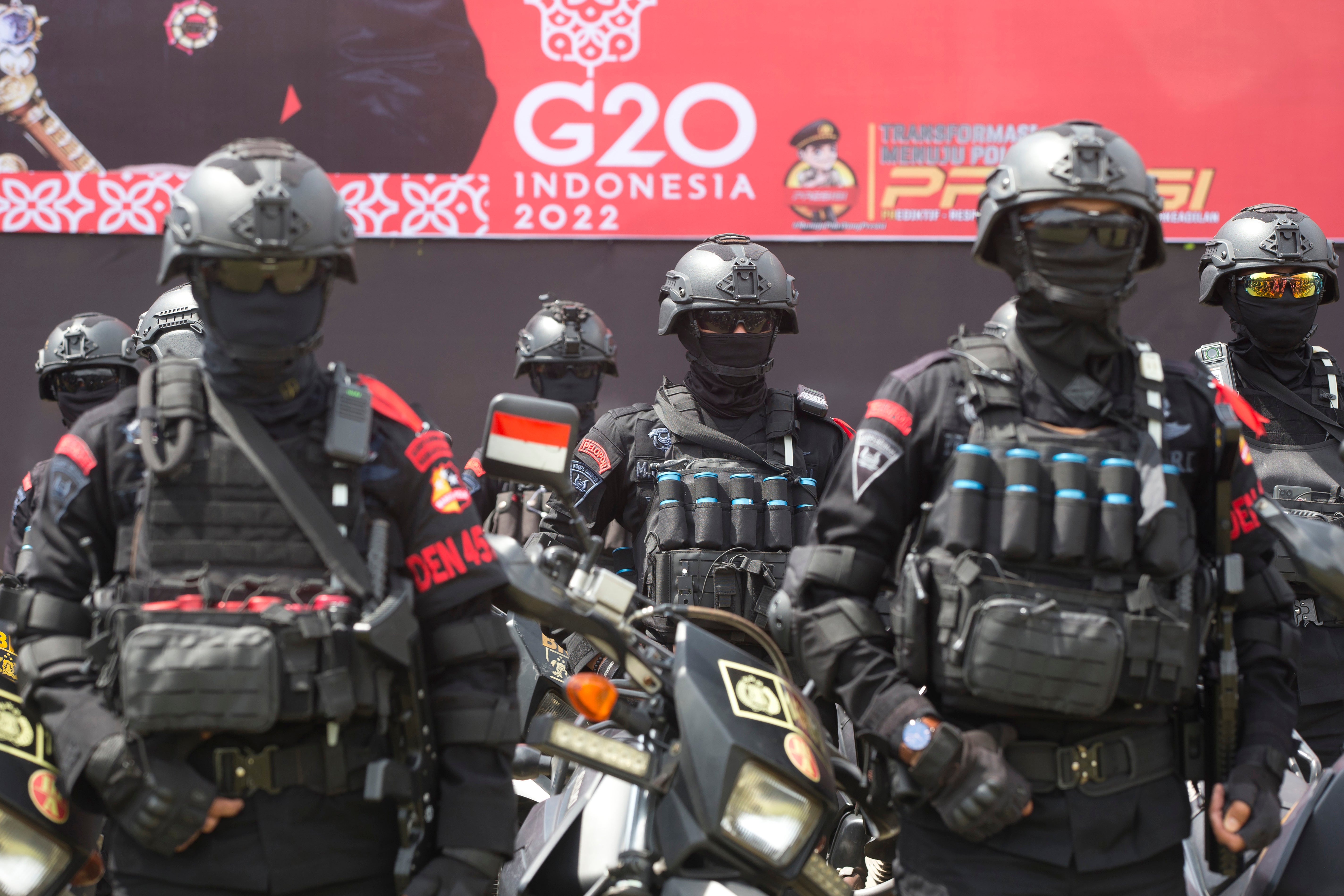G20 world leaders’ summit risks paralysis due to Russian invasion of Ukraine
With Moscow holding a veto, members are expected to be unable to agree communiqué, writes Andrew Woodcock


When Rishi Sunak arrives for the G20 summit of world leaders in Bali on Monday, he will be joining a group in the throes of deep uncertainty about the point of its existence.
Founded in 1999, the group has held annual meetings since the financial crisis of 2008, as a forum for the world’s 19 leading national economies and the European Union to discuss coordination of economic policy in response to global shocks.
But the biggest shock currently impacting on the world’s economy was created by one of the G20 states itself – Russia’s invasion of Ukraine, which has driven spiralling energy prices, inflationary spikes, food shortages and recession around the globe.
Russia was expelled from what was then the G8 – now the G7 – in 2014 following its illegal annexation of the Ukrainian region of Crimea.
But it remains a member of the G20, and until recently Vladimir Putin was indicating that he would attend this week’s summit in Indonesia in what would have been a highly awkward challenge for its organisers in protocol terms.
The Russian president has now announced he will send his foreign minister Sergey Lavrov in his place. But his absence will not improve the prospects of the G20 members reaching any consensus on action to be taken.
So long as Russia holds a seat at the G20 table, it has an effective veto, which Lavrov is certain to wield.
Meetings of finance and foreign affairs ministers held earlier this year ended without agreement. And organisers admit that this week’s summit is likely to end – for the first time since 2008 – without a communique setting out a joint plan of action approved by all members.
The communiques – hammered out in advance by officials known as sherpas, with final details negotiated in person by leaders at the summit – are often bland recitations of vacuous commitments, such as the wish to boost prosperity or ensure education for all or tackle climate change.
But they at least indicate a shared understanding of the challenges facing the world and an agreement – however woolly – that something needs to be done.
When the biggest challenge confronting them is the illegal military occupation of parts of a neighbouring state by one of their members, which has committed a host of war crimes in the process, the G20 is unable even to agree a statement condemning the situation.
It is inconceivable that Moscow would agree to any joint position on, for instance, easing energy shortages or getting food to hungry nations, when Russia is using its control of supplies of gas, oil and foodstuffs as a weapon in its war on Ukraine.
Lavrov will doubtless be treated to a tongue-lashing from Western states, and there will be a plethora of one-on-one meetings between world leaders on the margin.
But the actual agenda of the summit itself – and the priorities of energy, food and digital issues named by Indonesian president Joko Widodo – is likely to go nowhere. Even the traditional “family photo” of smiling presidents, prime ministers and princes lined up alongside one another is understood to have been cancelled because leaders were unwilling to be pictured with Russians.
Together the G20 members – Argentina, Australia, Brazil, Canada, China, France, Germany, India, Indonesia, Italy, Japan, Mexico, Russia, Saudi Arabia, South Africa, South Korea, Turkey, the UK, US and EU – represent around 85 per cent of world GDP, 75 per cent of global trade and two-thirds of the world’s population.
The grouping has already been criticised for being too unwieldy and disparate to drive meaningful action on challenges such as financial instability, gaping wealth inequalities and climate change.
With one of its members now effectively a pariah, the charge from critics will be that the G20 has gone from being largely ineffective to paralysed.
Join our commenting forum
Join thought-provoking conversations, follow other Independent readers and see their replies
Comments
Bookmark popover
Removed from bookmarks